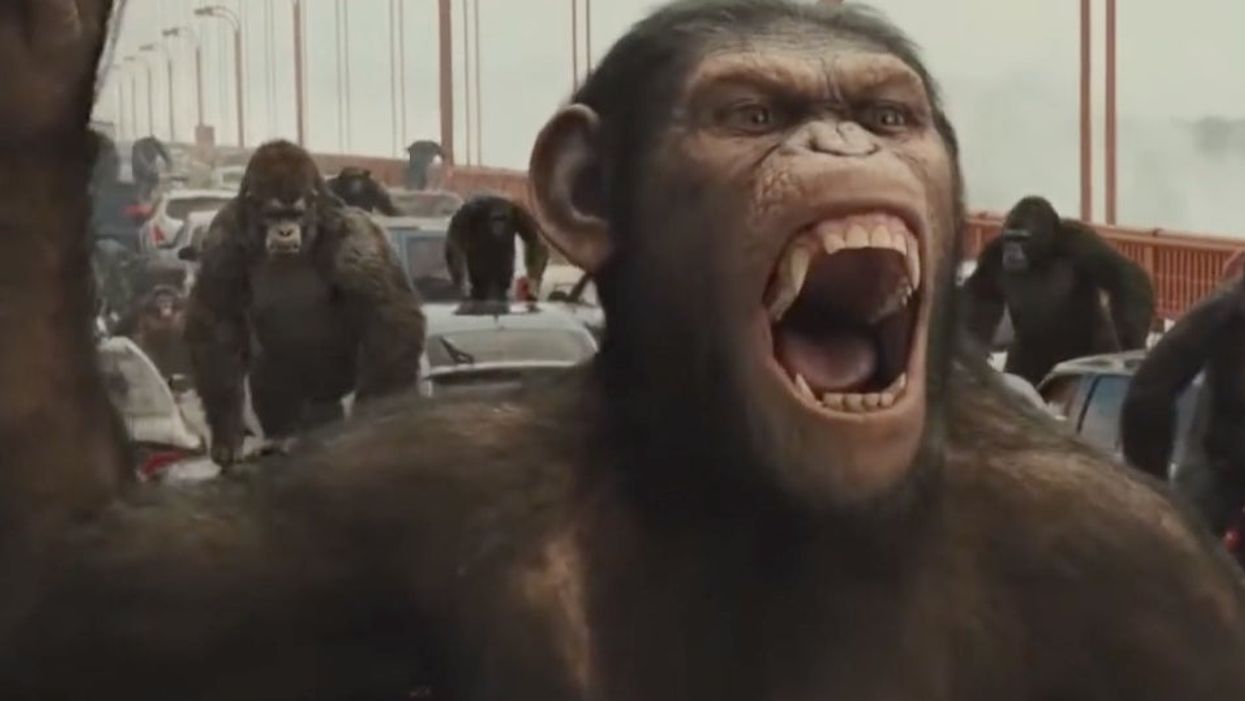Science & Tech
Harriet Brewis
Apr 16, 2021
The first human-monkey embryos have been created and kept alive for up to 20 days – and people are concerned.
The hybrids were made by injecting human stem cells into macaque embryos in a US lab, creating what is known as a chimera.
Researchers from the Salk Institute in California said their work, which was published in the journal Cell, aimed to understand more about early human development.
However, a number of ethicists in the UK have warned that this type of work “poses significant ethical and legal challenges” and “opens Pandora’s box to human-nonhuman chimeras”.
Meanwhile, all social media users can think about is Planet of the Apes.
Read more:
- ‘The Circle’ apartment is a catfish - here’s where it’s actually filmed
- The 18 best memes and reactions as M&S declares legal war on Aldi over Colin the Caterpillar
- Reddit just realized that Jerry Seinfeld’s TV apartment defies the laws of science
- 20 jokes only very intelligent people will understand
- Ex-McDonald’s employee reveals Sundays are the worst day of the week to order
Here’s how people have responded on Twitter since news of the experiment emerged:
Chimeras are organisms whose cells come from two or more individuals.
In humans, chimerism can naturally occur following organ transplants, where cells from that organ start growing in other parts of the body.
The human-monkey researchers, led by Professor Juan Carlos Izpisua Belmonte, say their work could help address the severe shortage in transplantable organs as well as help understand more about disease progression and ageing.
Prof Izpisua Belmonte said: “These chimeric approaches could be really very useful for advancing biomedical research not just at the very earliest stage of life, but also the latest stage of life.”
In 2017, he and his team created the first human-pig hybrid, where they incorporated human cells into early-stage pig tissue but found that human cells in this environment had poor molecular communication.
So the team decided to investigate lab-grown chimeras using a more closely related species – macaques.
The human-monkey chimeric embryos were monitored in the lab for 19 days before being destroyed.
According to the scientists, the results showed that human stem cells “survived and integrated with better relative efficiency than in the previous experiments in pig tissue”.
The team said understanding more about how cells of different species communicate with each other could provide an “unprecedented glimpse into the earliest stages of human development” as well as offer scientists a “powerful tool” for research on regenerative medicine.

Prof Izpisua Belmonte maintains that their work has met the current ethical and legal guidelines, adding: “As important for health and research as we think these results are, the way we conducted this work, with utmost attention to ethical considerations and by coordinating closely with regulatory agencies, is equally important.
“Ultimately, we conduct these studies to understand and improve human health.”
However, Prof Julian Savulescu, director of the Oxford Uehiro Centre for Practical Ethics and co-director of the Wellcome Centre for Ethics and Humanities, University of Oxford, warned: “This research opens Pandora’s box to human-nonhuman chimeras.”
He said: “These embryos were destroyed at 20 days of development but it is only a matter of time before human-nonhuman chimeras are successfully developed, perhaps as a source of organs for humans. That is one of the long-term goals of this research.
“The key ethical question is: what is the moral status of these novel creatures? Before any experiments are performed on live-born chimeras, or their organs extracted, it is essential that their mental capacities and lives are properly assessed.”
Sarah Norcross, director of the Progress Educational Trust, said that while “substantial advances” are being made in embryo and stem cell research, which could bring equally substantial benefits, “there is a clear need for public discussion and debate about the ethical and regulatory challenges raised”.
Twitter’s number one plea? Please don’t let the apes take over the world.
Top 100
The Conversation (0)














